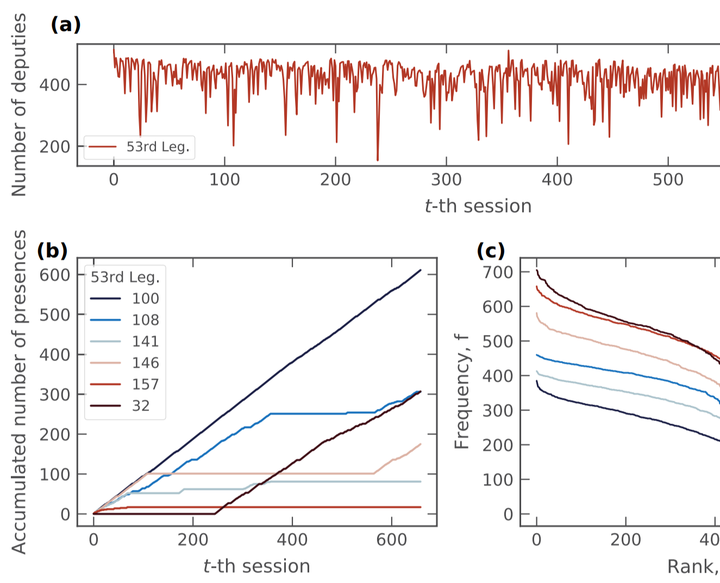
Abstract
Concepts of statistical mechanics as well as other typical tools of physics have been largely used in the analysis of several aspects of social systems, for instance, in politics. In this work, we examine parliamentary presence utilizing data from the sessions of the 49th–54th Brazilian Chambers of Deputies (24 years, 1991–2015). For each federal deputy, we construct a random walk by considering their presence in a session as a step of unitary length and their absence as one of zero length. By using this approach, we put in evidence a quantitative description of the dynamics of the system. More specifically, we identify an anomalous diffusive process that corresponds to a robust superdiffusion, well identified with a ballistic regime. In addition, for each legislature and encompassing all its sessions, the system is modeled by a beta probability distribution, where the parliamentary presence scales with the number of sessions.